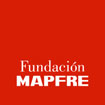COLLECTIONS CATALOG
Biography
Diane Arbus (New York, 1923-1971) was one of the most notable North American photographers of the 1950s and ‘60s. She was raised in a wealthy Jewish family and studied photography with Berenice Abbott and Alexey Brodovitch. In 1945 she founded the Diane and Allan Arbus Photography Studio with her husband. Both made fashion photographs on commission for clients such as Vogue magazine. From 1955 to 1957 she studied with photographer Lisette Model who became her mentor and would teach her a new way of taking photographs.
Arbus is particularly well known for portraying characters that were, to some extent, at the margins of society and who came to be known as freaks within her own universe. Her work is a sort of anthropological inventory of the heterogeneity of North American post-war society: couples, children, circus artists, twins, handicapped people, transgender people, and celebrities were the usual protagonists of her images. Along with other masters such as William Klein and Helen Levitt, Arbus was one of the main figures of the New York school.
In 1972, one year after her death, she became the first woman photographer to represent the United States at the Venice Biennale. She was awarded a Guggenheim Fellowship on two occasions, in 1963 and 1966. The celebrated book Diane Arbus Revelations (2003) that accompanied the retrospective of her work at the San Francisco Museum of Modern Art contained two hundred photographs and extracts from her letters and notebooks.
